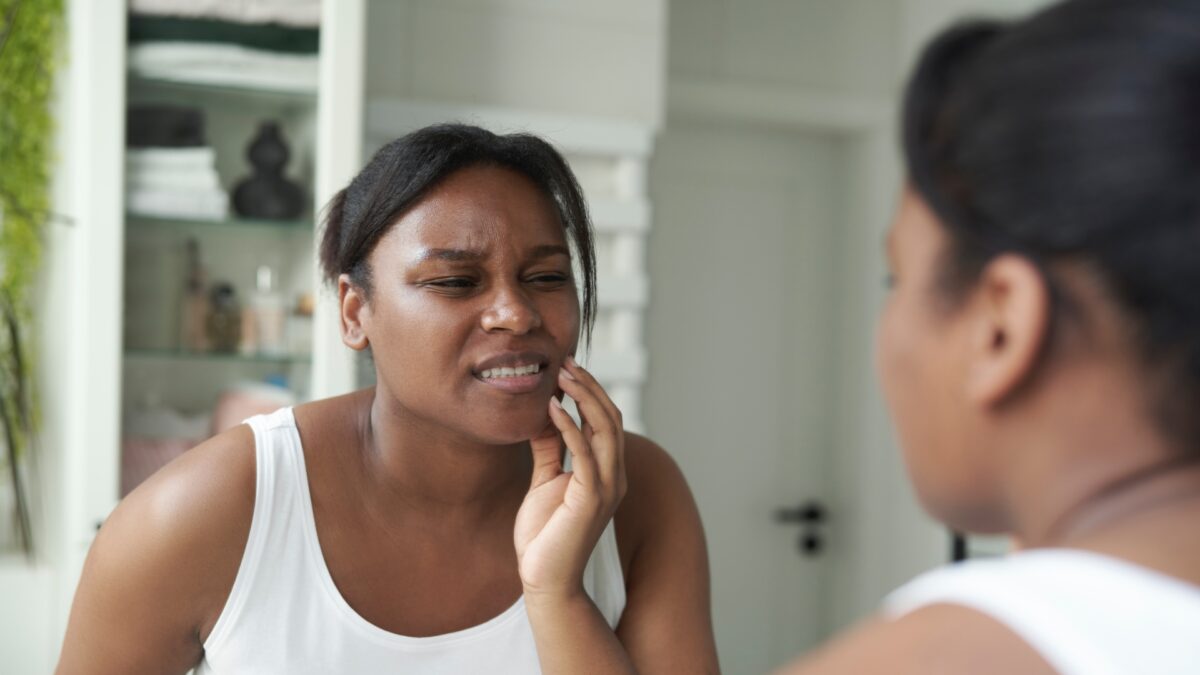4 Causes of Bruxism and How to Treat the Condition
Posted on July 31, 2023 by Associates of Dentistry

Have you ever woken up with a headache or jaw pain, wondering what on earth happened during the night? If this scenario sounds familiar, you might be experiencing bruxism, a common sleep disorder that affects millions of people worldwide. Bruxism, also known as teeth grinding, can have significant impacts on your dental health, quality of sleep, and overall well-being. In this blog, we’ll look into the causes and potential treatments for bruxism, helping you regain peaceful nights and protect your precious pearly whites.
What is Bruxism?
Bruxism is a condition characterized by the involuntary grinding or clenching of teeth during sleep or while awake. While occasional bruxism is relatively common and harmless, chronic and severe cases can lead to serious consequences. The disorder is classified into two main categories: awake bruxism (daytime teeth grinding) and sleep bruxism (nocturnal teeth grinding).
Sleep Bruxism
Sleep bruxism is the most prevalent form, affecting individuals while they are unconscious and often unaware of their actions. It is considered a sleep-related movement disorder and can range from mild to severe. As a result of this continuous friction between teeth, bruxism can lead to various dental and health problems.
Potential Causes of Bruxism
The exact cause of bruxism is not always clear, but it is believed to be a combination of psychological, genetic, and lifestyle factors. Some potential causes of bruxism include:
1. Stress and Anxiety
High levels of stress and anxiety are frequently linked to bruxism. The subconscious response to stress can manifest as teeth grinding during sleep.
2. Sleep Disorders
Bruxism is often associated with other sleep disorders, such as sleep apnea or restless leg syndrome. Disrupted sleep patterns can contribute to teeth grinding.
3. Dental Misalignment
Malocclusion, or improper alignment of teeth, can put excessive pressure on certain teeth, leading to bruxism.
4. Lifestyle Factors
Excessive alcohol consumption, smoking, and the use of certain medications have been linked to an increased risk of bruxism.
Treatment Options for Bruxism
Fortunately, several treatment options can help manage and alleviate bruxism. The most appropriate treatment plan will depend on the severity of the condition and its underlying causes.
Mouthguards
Dentists often prescribe custom-made mouthguards to protect teeth from the grinding force during sleep.
Stress Management
Since stress is a significant trigger for bruxism, finding healthy ways to manage stress, such as yoga, meditation, or exercise, can be beneficial.
Behavioral Therapy
Cognitive behavioral therapy (CBT) can help individuals identify and address the underlying emotional triggers that contribute to teeth grinding.
Medications
In some cases, muscle relaxants or medications for anxiety or sleep disorders may be prescribed to reduce bruxism.
Dental Correction
Correcting dental misalignment through orthodontic treatment can alleviate pressure on specific teeth, reducing the likelihood of grinding.
Get Bruxism Diagnosed and Treated
If you believe you are experiencing bruxism, it’s essential that you get diagnosed and examine treatment options.
